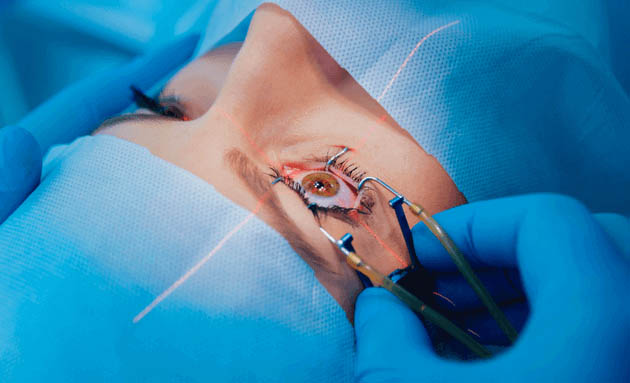
- admin_kataria
- March 5, 2024
- 5:09 am
A cataract is clouding on the lens of the eye that blurs the image formed on the retina. Light enters the eye through the lens. The retina sends signals to the optic nerve of the brain that interprets the image. The presence of a cloudy layer on the lens of the eye prevents clear vision. Know Cataract better: Increased intensity causes severe difficulty in reading, writing, and carrying daily activities. Cataracts usually do not occur in both eyes at the same time, and it progresses slowly. At the initial stage, wearing glasses can help to get a clear vision. But at a later stage, there occurs a need for surgery. Extending the period waiting for cataracts to get over by itself is a myth. It needs treatment and, in many cases, surgery. Consult your eye specialist, and if he recommends, do not extend the period of surgery. However, small initiatives and lifestyle changes can help you till the time you wait, plan, and prepare for surgery. It includes wearing glasses and contact lenses of accurate prescription, prefer doing reading and other vision-related activities in bright light. Prevent high beam rays from entering your eyes by wearing sunglasses or a broad-brimmed hat to reduce glare. Maintain a healthy body chart and add fruits and vegetables that contain antioxidants to your food menu. Cataract Surgery: Cataract surgery is effective and safe with minimum inconvenience and a high success rate. There are different types of non-invasive surgery that experts recommend depending on the individual eye problems and conditions. Phacoemulsification involves the use of ultrasound waves to break the lens apart and remove the pieces. Extracapsular surgery arises the need to make a long incision in the cornea. It facilitates removing the cloudy part of the lens. Artificial intraocular lenses replace the natural lens. Surgery is safe and has a low percentage of complications. Immediately after surgery person may experience irritation, itching, and sometimes swelling. However, these conditions last for very little time and go away as the wound inside the eye heals. Rarely there occur complaints about infection, bleeding, and retinal detachment.



